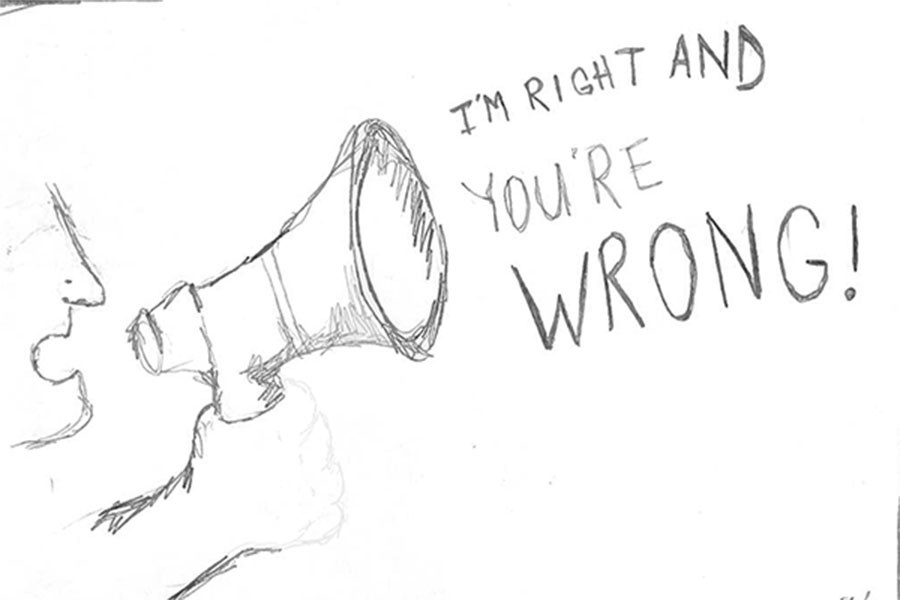EDITORIAL: Urban discussions need to be about dialogue rather than shutting each other down
Urban puts effort into creating open spaces for discussing and learning outside of the classroom. For example, MultiCulti holds the annual Month of Understanding, and various clubs hold forums and panels to make space for important topics worthy of conversation that otherwise would not fit into school life. As Urban’s Core Values state “We honor the uniqueness of each individual and embrace diverse backgrounds, values and points of view to build a strong, inclusive community and to prepare students for lives in a multicultural society.”
However, many students that were interviewed by the Urban Legend have recently come to the conclusion that such discussions are not fully engaged in by all students and that potentially constructive conversations tend to derail into competitive arguments monopolized by dominant vocal opinions.
“I definitely think, rules-wise, everyone can speak for themselves, and there’s an opportunity to speak up, but the way that it’s set up, a lot of people who are already educated on issues are the ones who are speaking the most, and for those who are afraid to make mistakes or say the wrong thing, it’s scary,” said Eleanor James (‘16).
Today at Urban, it seems that for each of the many issues that are discussed throughout the school, there are vocal groups of people that dominate the conversation, and that can make it challenging or intimidating for others to speak up or share what is on their minds.
“I think that there is a … predominant belief system, (which is) very liberal, and if you diverge from that I’ve definitely seen kids get pretty attacked for that, and people like to get angry. I think also in discussion a lot of the time … people are kind of saying the same thing but they word it slightly off and they get attacked for it,” said Emily Miller (‘15).
Latté Hutchinson (‘18) echoed a similar sentiment, stating that “this is an environment where everybody has the right to share their opinion, but … not everybody wants to share because there definitely is a group of people who can be judgmental.”
Some students are unwilling to contribute to discussions, especially those centered around controversial topics, at the risk of being publicly judged or dismissed as uneducated. Because of this, there seems to be a lack of dissenting opinions present in many Urban discussions.
“It’s hard … for people that are less educated on a certain topic or are not involved in something to feel welcome to talk about it because there is a sense that being educated means you have a better opinion, which is limiting for the people who are allowed to speak on certain subjects,” said Lena Galinson (‘16).
Though it can be challenging to hear an opposing opinion, we as a student body need to work together to stimulate discussion and positive engagement with issues that come up in the Urban community. If our aim is to make Urban a safe and welcoming environment, then we need to own up to our mission to create safe spaces where everyone feels comfortable expressing their opinions.
“I think in general we all have to be better at practicing dialogue than debate. The purpose of debate is to shut down a person who has an opposing viewpoint to yours, but as a school we should be practicing dialogue,” said Ken Garcia-Gonzales, the Dean of Multicultural life, also stating that there are “non-negotiables in terms of content: … institutionalized racism is a fact, there is no debate about that, there is no need to have dialogue about that.”
We are meant to exchange ideas as we go through life. Opinions should be something we can obtain, discard, or share with others when needed. As such, it is time that all Urban students begin to share their own opinions, because the only way to advance together as a community is to feel comfortable engaging in dialogue, not in fear of causing a shouting match.












